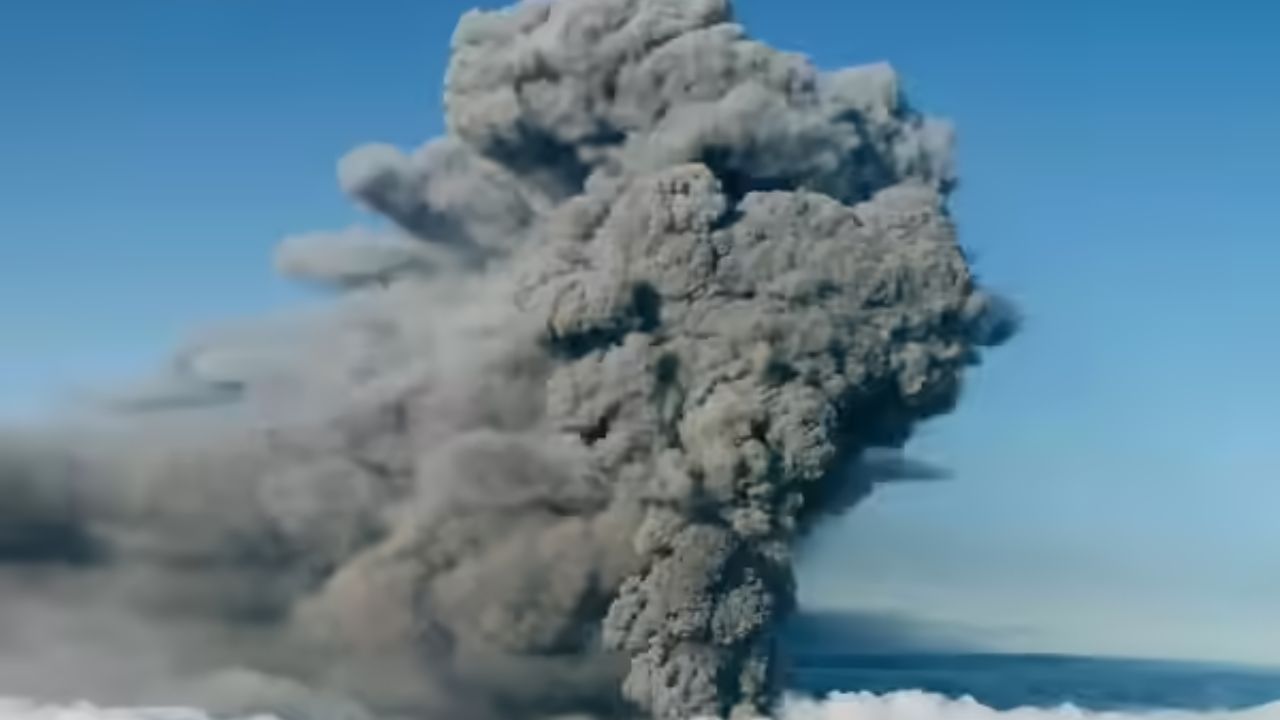 English
English

A massive volcanic ash cloud from Ethiopia’s Heliy Gubi volcano, which erupted after 12,000 years, is now reaching India, affecting flight operations and prompting safety advisories. Several international and domestic flights have been canceled or rerouted, particularly over Delhi, Haryana, and western Uttar Pradesh.

Massive Volcanic Ash from Ethiopia Disrupts Air Travel in North India
New Delhi: A massive plume of ash, released by the Haile Gubi volcano in Ethiopia's Haile Gubi volcano, the first eruption in 12,000 years, has now moved toward India, posing a significant challenge to air traffic. The thick ash cloud has forced the cancellation or diversion of several international flights. The Directorate General of Civil Aviation (DGCA) has issued an advisory to airlines and airports, instructing them to remain vigilant and avoid affected areas.
According to experts, the volcanic ash is moving across the Red Sea, through Yemen and Oman, toward the Arabian Sea and North India. Its greatest impact has so far been felt over Delhi, Haryana, and western Uttar Pradesh. However, due to the ash's high altitude, the impact on ground air quality is likely to be minimal. Authorities have ordered continued monitoring.
Delhi chokes as AQI stays above 400; Will Ethiopia’s Volcano Ash worsen the air?
In light of the threat of dense ash, several airlines have canceled or diverted flights. Akasa Air has cancelled all international flights to Jeddah, Kuwait, and Abu Dhabi on November 24 and 25, offering passengers the option of a full refund or free rebooking. KLM Royal Dutch Airlines has cancelled Amsterdam-Delhi and Delhi-Amsterdam flights.
IndiGo has rerouted several flights, advising passengers to remain vigilant. For example, the Kannur-Abu Dhabi flight (6E1433) was diverted to Ahmedabad due to ashfall. Air India has also cancelled several international and domestic flights to assess the safety of aircraft flying over affected areas.
The DGCA has issued clear instructions to airlines not to fly over ashfall areas and at high altitudes. Flights have been asked to immediately report any changes to their route and fuel plans, engine problems, or smoke or odors in the cabin.
Airports will also be required to inspect runways, taxiways, and aprons for ash and halt operations if necessary. The DGCA has advised airlines and airports to continuously monitor satellite imagery and weather forecasts.
Delhi air pollution hits hazardous levels, AQI crosses 400; NCR breathing toxic air
Experts have urged passengers not to panic about any problems or flight changes due to ash, but to remain vigilant and follow airline instructions. The impact of volcanic ash is primarily on flights and air safety, with minimal impact on life or health on the ground.
The DGCA's advisory is proving crucial for flight safety and timely information in India, helping passengers and airlines avoid any unexpected events.